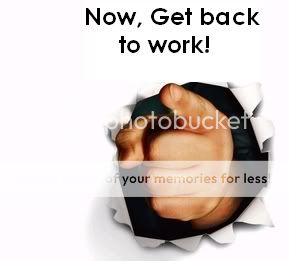Almost everyone has one and almost everyone is in debt because of them, I’m talking about credit cards. Credit cards are a necessary evil in our society and are often used in ways that lead to financial trouble at some point. If you get a credit card while you are young, say college age, chances are you don’t know how to use the card to your advantage and start your credit history off behind and in a hole. If you are an adult who never applied for a credit card, you have a problem too because credit cards and your payment history play a major role in your credit score. As an adult it is harder to get a credit card if you have never had one or have a history of bad credit, but it is not impossible. There are credit cards out there for everyone from those with great credit to those with no credit, but keep in mind those cards for people with bad credit or no credit these cards usually carry some type of fee. Go to
creditcard.com to find the right card for you. They are not the only site that compares credit cards, there are many out there.
PROS

Credit cards can be good and actually work for you – if used correctly. For instance, using a gas rewards card, and paying it off each month, gives you points depending on the type of rewards program. Think of the cards that offer frequent flyer miles. BUT these types of rewards cards are only beneficial if used and the balance is paid in full each month. Carrying a balance on any card is not a good thing.
Credit Cards can be used in the case of emergencies, if there is no other option available. This should be a last resort.
Using your card in the most efficient and practical way helps you to build a positive credit history. This is important because when you apply for a loan or mortgage your credit history is what lenders look at to determine the risk associated with lending to you. If you have a good debt-to-credit ratio (meaning you haven’t use more than a certain percentage of your available credit – most people say you should use less than around 30% of you available credit) you are able to successfully apply for loans with a lower interest rate.
Keep this in mind when thinking about your credit score as it pertains to your credit score: payment history (35%), level of debt/credit utilization (30%), age of credit (15%), mix of credit (10%), and credit inquiries (10%).
Debt Used divided by Available Credit = Debt Load Example:
$2,500 of debt charged to a credit card
with a limit of $5,000
$2,500/$5,000 = a debt to credit ratio of 50%
$10,000 of credit card debt with total available limits of $10,000 (means you are maxed out on all your cards!)
= $10,000/$10,000 = 100% debt to credit ratio
Here are some ways to improve your debt-to-credit ratio:
• Find areas to cut costs
• Double up on credit cards (paying more than the minimum monthly payment due)
• Stop using the card altogether
• Build an Emergency Fund
• Avoid major purchases (save for them and pay in cash)
• Consider help – email personalfinance4thepeople@gmail.com we can help!
Having a good credit score makes you a better candidate for receiving loans because you are more likely to pay back the loan. You will receive lower interest rates and be able to pay off your loan faster. If you have a bad debt-to-credit ratio, or no credit the best thing to do is to work with someone that will help you build or fix your credit.
CONS

Credit cards are a necessary evil, down right
BAD in the wrong hands. To use your card properly you have to understand credit and how it works and, let’s face it, most of us know very little or nothing at all about how these things work.
Credit cards help us to forget about the rule of wants vs. needs because they make buying what you want so easy. You don’t have to worry about having the money to pay for it right then and there, but we often forget about things like interest and actually having to pay for the item monthly.
Previously, credit card companies were very lenient in giving out credit, despite the person’s ability to make the monthly payments. This has lead to changes in how and who can receive a credit card and credit, leading to credit being scarce for those who actually need it.
The way lenders and credit card companies use to think, before legislation changes, that it was in THEIR best interest for people to carry a balance. That’s essentially how they make money. They make money on the interest and fees they charge for those who use credit and credit cards; so to the companies carrying a balance is a good thing, especially if you have a high interest rate and carry a large balance.
Carrying a balance is no bueno. Using more than 30% of your debt-to-credit ratio is no bueno. Having no credit is no bueno. Not understanding credit is no bueno.

Credit and credit card can be very tricky, but if you understand how to use them they can be an asset instead of a hindrance. Oh, and DON’T your cards, that messes with your debt-to-credit ratio and credit history. Pay off the balance and buy something cheap once a month or so and pay the balance in full each month to keep the card active and your credit history intact.

















